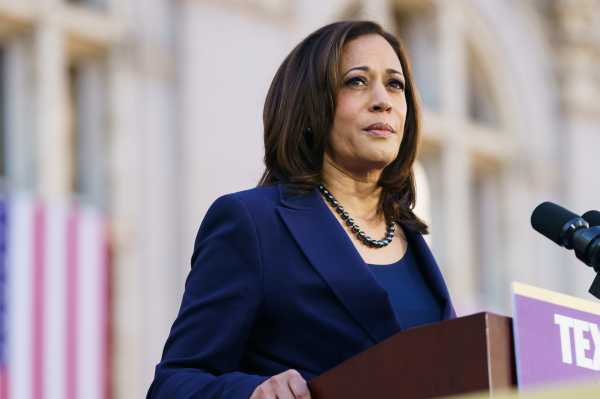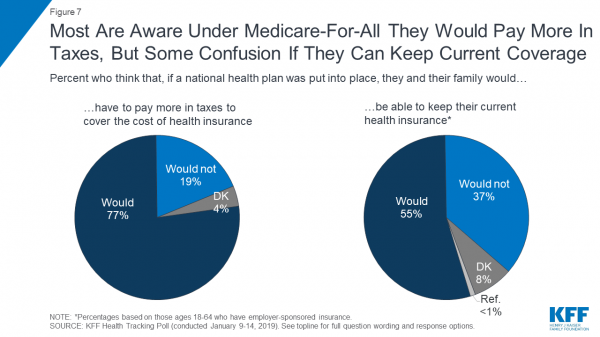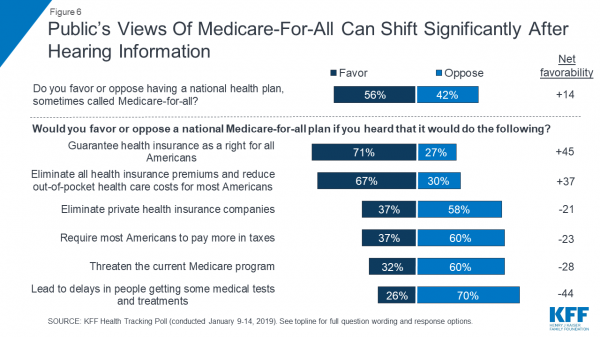
On Monday, CNN’s Jake Tapper asked Sen. Kamala Harris (D-CA), the big question about Medicare-for-all point blank: Are people going to lose the insurance they have right now?
To her credit, Harris, a leading 2020 presidential contender, did not duck the issue: “Let’s eliminate all of that. Let’s move on.”
“The idea is that everybody gets access to medical care,” she explained. “You don’t have to go through the process of going through an insurance company, having them give you approval, going through the paperwork, all of the delay that may require.”
“Who of us has not had that situation, where you’ve got to wait for approval and the doctor says, ‘Well, I’m not sure whether your insurance company is going to cover this.’”
Harris is saying something Democrats, including many who support Medicare-for-all in theory, sometimes elide: True single-payer would mean the end of private insurance. The left wants America to catch up with most of the developed world, where health insurance is more or less a right of citizenship and costs are still lower, and they think the best, simplest way to do it is to put everybody into one national health care plan.
This could be tricky political ground, however. Two recent poll findings from the Kaiser Family Foundation pointed to the danger: Most Americans wrongly believed they would be able to keep their current insurance under a national health plan and support for Medicare-for-all dropped substantially when respondents were told that the program would eliminate private insurance. This is why many of the Medicare expansion plans being proposed would actually keep private insurance around.


Doing anything as big as Medicare-for-all would be difficult. Doing it while canceling a large portion of the country’s current health insurance plans, even with a transition period, would be an undertaking with no precedent in the history of American social policy. It would require the categorical commitment of the next Democratic administration to get it done.
So there are two equally important questions for gauging whether Democrats running for president are serious about passing Medicare-for-all: Are they going to make it a top priority, and are they prepared to call for eliminating the Senate filibuster to ease its passage?
Passing Medicare-for-all means making it a top legislative priority
National health insurance is something that Democrats have been trying to accomplish since the Harry Truman years, but passing a major health care overhaul is hard. Bill Clinton couldn’t get it done. Barack Obama barely did. President Donald Trump and Republicans in Congress fell short in their own crusade.
It is almost guaranteed to consume six months — or more — of your legislative agenda and, as Obamacare showed, the bulk of your political capital will be spent when it’s over, even if you’re successful. A big climate change bill was left to die because after Democrats found it so difficult to pass the Affordable Care Act in 2009 and 2010, there wasn’t any energy or the time left for another major legislative pursuit.
So the order in which presidential candidates would tackle the various issues and initiatives on their agenda matters a lot. To pass a Medicare-for-all plan — even a more limited version of it — it would probably need to rank either first or second on the White House’s agenda. Obama passed the stimulus, the Dodd-Frank financial industry reforms, and the ACA. Trump tried to pass ACA repeal and succeeded in passing a tax overhaul. There simply isn’t time for anything else.
Democrats do have a lot of other issues they care about. Sen. Elizabeth Warren (D-MA) has a slew of ambitious proposals advancing workers’ rights and taxing extreme wealth. Sen. Kirsten Gillibrand (D-NY) is pushing universal paid family leave.
While presidential candidates are usually reluctant to detail their legislative plans too specifically during a campaign, they can make clear which issues are their top priority. It will tell us a lot whether they say they will pass Medicare-for-all right away or whether they are more circumspect.
When asked this question, Harris’s campaign said Medicare-for-all would be a top priority for the senator — but they noted her tax proposal ranks at the very top.
Campaign aides say Harris believes there is an imperative to address health care and that Medicare-for-all would rank as a, if not the, top priority for her White House. They say she understands well that political capital can evaporate very quickly after a president enters office.
Democrats will also probably need to eliminate the Senate filibuster
Even a Democratic president who makes a health care bill a top agenda item, though, will run into the Senate rules. Even if Democrats hold the House and win back the presidency in 2020, they’ll be lucky to eke out any kind of majority in the Senate. Right now, major bills need either 60 votes to advance, or they must go through the reconciliation process that allows a bill to move with a bare majority but limits the contents of the bill.
There is probably no universe in which Democrats win 60 Senate seats in 2020. So if they decide they’re serious about Medicare-for-all, they would be stuck trying to pass their next health care plan under the reconciliation rules. Unless they are willing to get rid of the filibuster and allow any legislation, not just reconciliation bills, to move with only 51 votes instead of the current 60-vote threshold. Vox’s Ezra Klein has laid out the importance of the filibuster question:
Gillibrand was asked recently about ending the filibuster by Pod Save America’s Jon Favreau, and she demurred. “If you don’t have 60 votes yet, it just means you haven’t done enough advocacy and you need to work a lot harder,” she said.
Harris’s campaign says she believes the Senate isn’t working right now, and wants to evaluate whether changes will be necessary to make it function better, but isn’t calling for the filibuster’s elimination at this time.
The truth is, keeping the filibuster probably means Medicare-for-all is unachievable for now, barring a significant political realignment or the kind of convoluted legislative process that led to Obamacare being an imperfect product.
Harris’s embrace of full-throated single-payer was the first significant health care moment in the Democratic primary. But the question of priorities and procedure will be more important in assessing whether candidates are serious about keeping their promise — or whether the issue has become just one more litmus test in the 2020 campaign.
Correction: This piece originally described Harris’s tax plan as a tax cut. It is, technically, a significant expansion of tax credits.
Sourse: breakingnews.ie
0.00 (0%) 0 votes


































